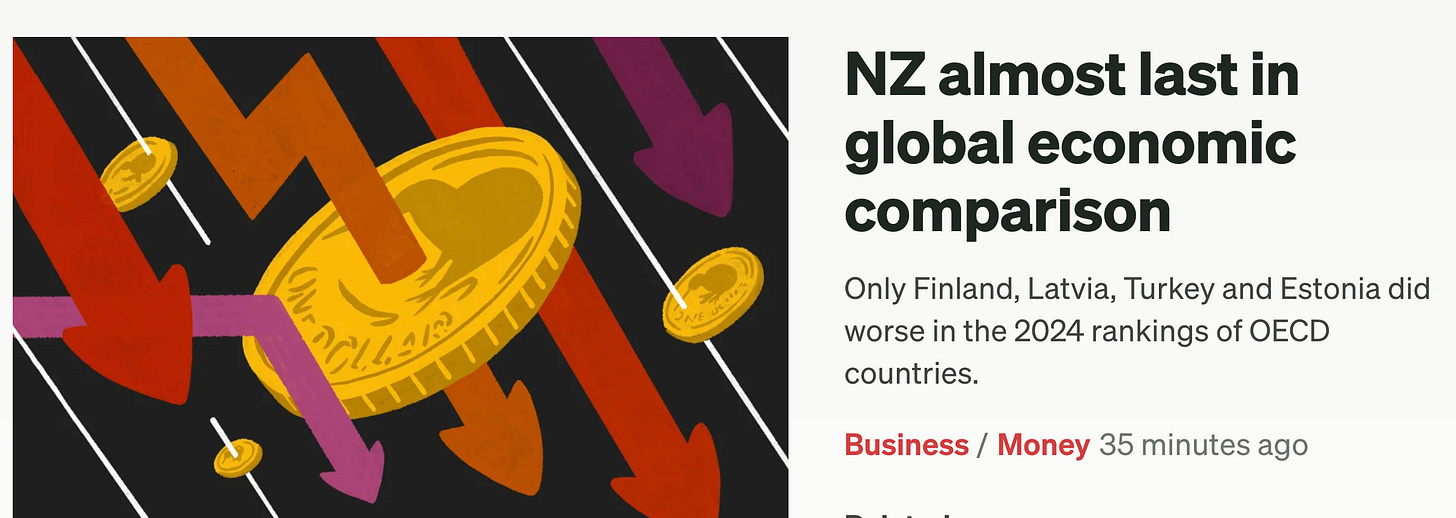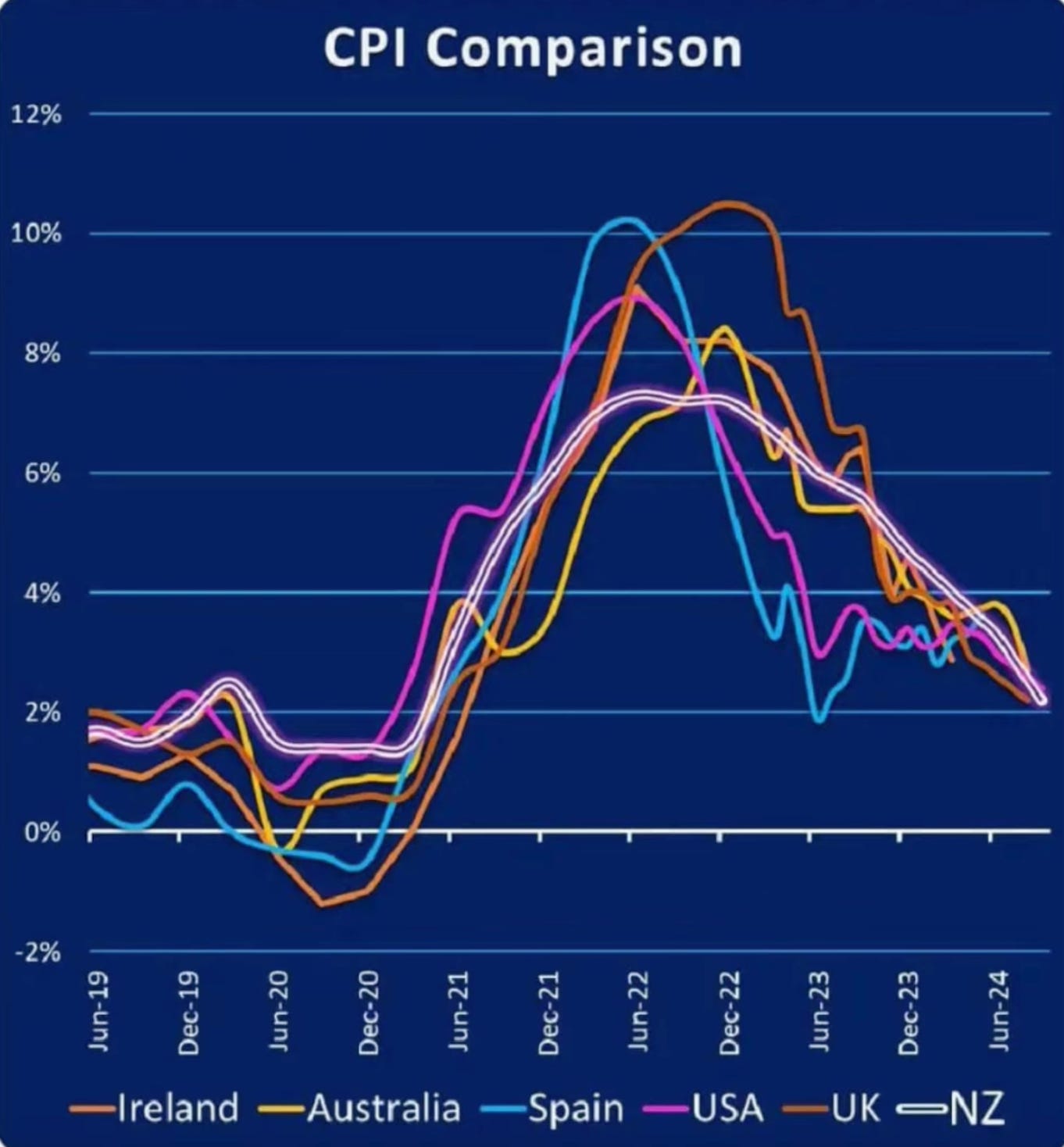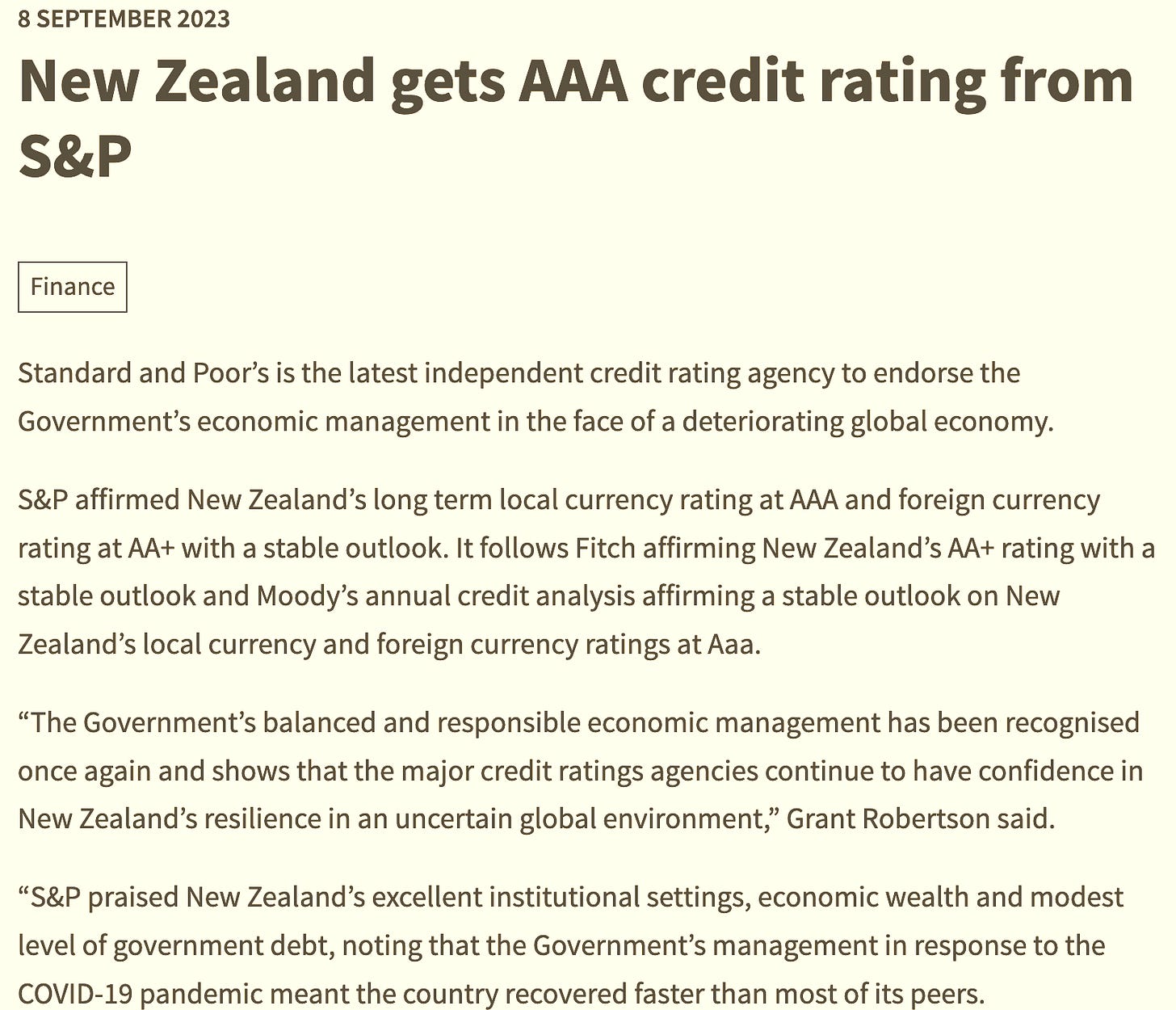Back on Track
This morning I awoke to the lovely news that we are firmly back on track, that is if the scale was reversed.
New Zealand's economy has been ranked 33rd out of 37 in an international comparison of which have done best in 2024.
Economies were ranked on GDP, stockmarket performance, core inflation, unemployment and government deficits.
To be fair, economists from Infometrics, Kiwibank etc. blamed high inflation and the RBNZ as one of the primary reasons, but it still beggars belief to me that named economists keep omitting the impact of fiscal policy.
Infometric’s Gareth Kiernan went a step further, echoing the right wing line of “Covid party”.
I thought all high school students were taught the two major policy arms of economics are monetary (interest rates - a relatively blunt tool) and fiscal (government spending and revenue - taxation).
So why is it that so many of our financial commentators ignore the clear and present impact of fiscal?
Still, a number of readers rushed forth to show me that Christopher Luxon is doing a brilliant job of manifestation:
Be careful what you wish for type stuff, perhaps?
On a separate economic note, Christopher Luxon and his government have consistently called Labour “economic vandals”, which is highly ironic, because they never seem to mention a once in a lifetime global pandemic, that saw inflation roar across the entire world - and supply side pressure coincide with high domestic demand across multiple continents.
And indeed, the return to more normalised levels was always forecast to follow the trajectory we are seeing, but the Coalition relies too much on a complicit media network, and low levels of economic literacy - taking credit for crashing the economy deeper than many could expect.
There was a Breakfast segment earlier in the year where, in response to Chris Bishop jibing Labour about high debt levels and the “party”, Kieran McAnulty pointed out some National MPs were telling the then government to borrow more. No mention of Covid from Bishop either of course.
Bishop quickly smoothed that over by changing the topic - but that always stuck with me.
Why do folks conveniently forget Covid? And why ignore the facts and context?
Sure, New Zealand is lucky enough to have avoided the very worst of it, but why has that led so many of us to fall down the rabbit hole, and ignore that part of our history?
Covid killed tens of millions worldwide but what I remember about it is the deaths in the hallways, the palpable fear in other countries, the fluid in the lungs, all those doctors that died in the earliest days saving lives and trying to stem the pandemic, and the devastating impacts of not only those who died - but their families, and those who suffer/ed long Covid.
During one meeting when Covid first struck, an executive in Europe told us that the bodies were on the streets in his country, and their hospitals unable to cope. This was stuff that chilled the bones, and from a business standpoint, certainly the question was whether any businesses could survive soon.
Whether people believe in Covid vaccination or not - and there is a large anti-vaccination movement that grew out of it, further fanned by opportunists and certain media and politicians who saw it as a way to shape their agenda and power base - my memory and experience both here and overseas tells me it was the vaccination that changed the speed and spread of Covid.
And fiscal measures that helped sustain the economy while the global pandemic took shape.
And steering it all, Grant Robertson and Labour won New Zealand acclaim and praise for their handling.
Robertson re-acquired a AAA rating from global credit agencies - a significant feat.
The below continues for paid subscribers, thank you to all.





